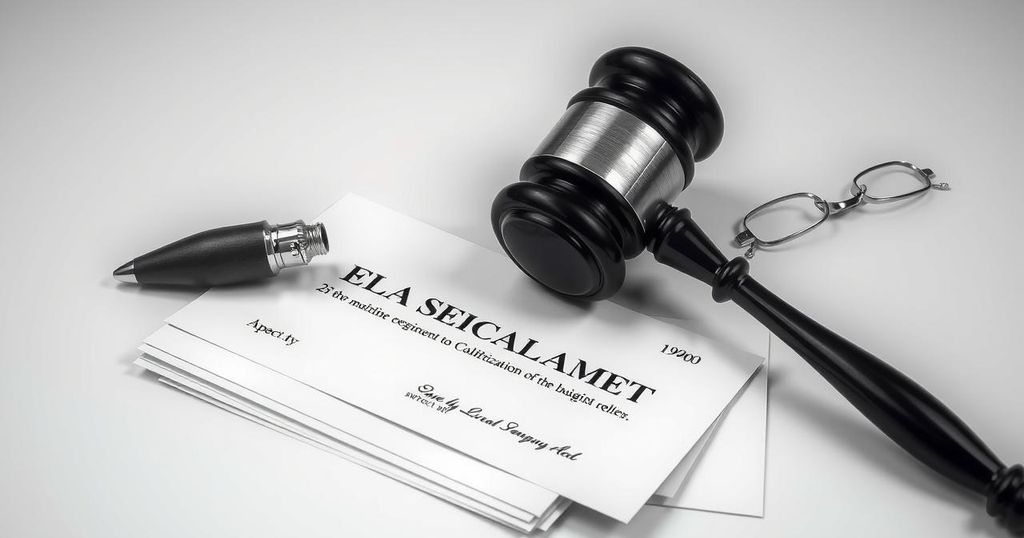Federal Judge Finds Trump Administration Violated Court Order in Deportations

A federal judge has ruled that the Trump administration unlawfully deported eight convicted criminals to South Sudan, violating a court order. This decision raises questions about immigration policy and judicial oversight, indicating a shifting dynamic in immigration enforcement under legal scrutiny.
A federal judge has determined that the Trump administration acted unlawfully when it deported eight convicted felons to South Sudan, thus breaching a court order. This surprising ruling emerged during ongoing scrutiny of immigration policies and their legal ramifications. The deportations have raised significant questions surrounding the legal limitations imposed on the administration’s actions regardless of the political landscape at the time.
The judge’s decision is crucial as it emphasizes the discretion given to courts regarding immigration enforcement practices. Notably, deporting individuals with criminal records must be closely aligned with court stipulations, demonstrating the complexities involved in immigration cases. The implications of this ruling may affect how future deportations and immigration policies are enforced, particularly under prior administrations.
Reportedly, the legal challenge stemmed from advocacy groups concerned about the treatment of deportees and potential human rights violations. Striking a blow to the previous administration, this ruling could serve as a pivotal point for immigration reform discussions. As these conversations continue, the repercussions of this decision underscore the balancing act between legal authority and executive privilege.
Moreover, the findings highlight the evolving relationship between the judiciary and the executive branches of government in matters of immigration. Legal experts suggest that this ruling could pave the way for more stringent oversight of deportation practices moving forward, creating a ripple effect across different cases and future legislation.
In reflecting on the recent ruling, the focus has shifted to accountability for immigration enforcement actions in light of legal verdicts. The courts appear resolute in ensuring that immigrants’ rights are preserved under U.S. law, offering some reassurance to advocates fighting for comprehensive immigration reform and justice in the legal process. This significant legal outcome sets a precedent that may affect numerous cases and influence the direction of immigration policy.
As political figures and advocacy groups weigh in, the aftermath of the ruling may signal a new era for immigration policy and enforcement, redefining the standards by which deportations occur. The judge’s decision serves as a critical reminder of the required adherence to established legal frameworks in immigration matters, regardless of administrative changes in Washington.
In summary, a federal judge declared that the Trump administration violated a court order when it deported eight convicted individuals to South Sudan. This ruling emphasizes the need for proper judicial oversight in immigration enforcement and signals potential ramifications for future deportation policies. It also highlights the ongoing tensions between the judiciary and executive branches regarding immigration practices, underscoring an evolving landscape for such legal matters.
Original Source: www.cbsnews.com







